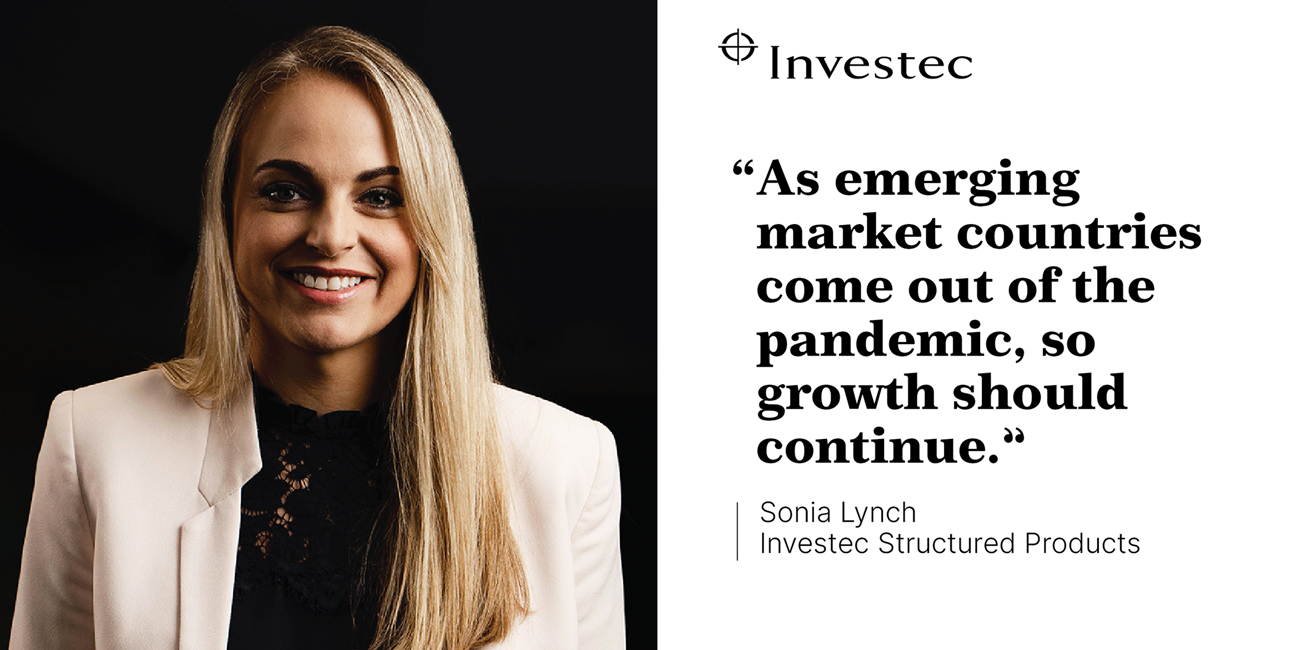Receive Focus insights straight to your inbox
After years of underperformance, emerging markets are back in fashion, thanks to a combination of low interest rates, increased liquidity and rising global demand, which are all helping to fuel commodity prices and domestic growth in emerging economies.
The endgame to the pandemic is coming more into view, allowing many economists and strategists to look forward to a world of increased mobility and trade – all factors that should help carry emerging market growth in the coming years.
Many of the factors that have benefited emerging markets in previous cycles are very much in play at the moment, including demand for commodities (particularly for the likes of commodity producers like South Africa, Brazil and other Latin American countries), low interest rates in developed markets (which is helping to increase liquidity in emerging markets) and a younger demographic (which should support higher domestic consumption).
However, the current cycle may prove more resilient than in previous years, for a number of reasons. One reason is that many emerging economies have strengthened their fiscal and current account positions since previous cycles.
Many have also diversified their economies considerably, including growing their technology sectors, which now form a larger part of emerging market economies.

“The result is that emerging markets are not just a cyclical play, but are more resilient to bouts of volatility, thanks to the diversity of their economies,” says Sonia Lynch of Investec Financial Products.
Lynch says that while the technology story is well-known in China, where the likes of Alibaba, Tencent and Huawei can be compared to their US counterparts, other regions are growing their technology sectors rapidly. She points to the example of South-East Asia, where the internet economy has tripled since 2015 and is set to triple again by 2025, according to Bain and Co forecasts.
“After the massive outflows of capital at the start of the pandemic, emerging markets have enjoyed strong inflows since then, on the back of an improving GDP outlook,” continues Lynch. “As these countries emerge from the pandemic, so this growth should continue.”
New structured product provides diversified exposure to cyclical growth
While a number of options are available for investing directly into emerging markets, many investors will be looking at ways to minimise some of the volatility intrinsic in global equity markets. Lynch says Investec’s new USD Emerging Markets Digital Plus is designed with this type of investor in mind.
“While the fundamentals for emerging markets appear good, many investors will understandably be looking to hedge out some of their risk over the coming years,” she explains.
The USD Emerging Markets Digital Plus is a four-year product, which locks in upside performance while providing downside protection, notes Lynch. If the MSCI Emerging Market Index is unchanged or higher at the end of four years, investors will earn a return of at least 22%, with full participation in the upside if the underlying rises by more than 22%.
Investors also have full protection of capital should the index fall by no more than 70% over the four years. The minimum investment is US$125,000 through the Dublin structure, or R100,000 through the SA-listed structure.
“We believe the USD Emerging Markets Digital Plus could also suit global investors looking to diversify holdings among the leading developed, specifically US markets,” concludes Lynch.
About the author

Patrick Lawlor
Editor
Patrick writes and edits content for Investec Wealth & Investment, and Corporate and Institutional Banking, including editing the Daily View, Monthly View, and One Magazine - an online publication for Investec's Wealth clients. Patrick was a financial journalist for many years for publications such as Financial Mail, Finweek, and Business Report. He holds a BA and a PDM (Bus.Admin.) both from Wits University.

